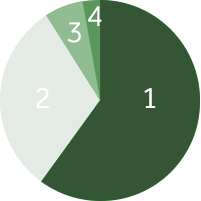Pedro Simko
Directeur, Publicis Europe
Cérémonie de remise des diplômes 2015
Lead and manage communication and media projects for multinationals, governments and international organizations.
The Master of Arts in Digital Media (MA-DM) is designed for students interested in pursuing careers in digital media and communications. The MA-DM provides a comprehensive introduction to today’s issues and challenges in media and communications: what is the role of the communications manager? How is digital media re-shaping the media landscape? How is digital media produced, distributed and consumed? How can organizations and individuals communicate effectively in a global and multicultural environment?
Students get first hand training in creating digital marketing tools from industry professionals and receive certification in Google analytics. The courses are designed to give practical training and insight using the latest programs and trends in the digital media field.
 PLAY
PLAY

Directeur, Publicis Europe
Cérémonie de remise des diplômes 2015

Secrétaire général, United Nations Conference on Trade and Development
Cérémonie de remise des diplômes 2015


The faculty at IIG in Switzerland, is international in experience, practical in orientation and focused on their teaching. The faculty members are student-centered and committed to foster a stimulating learning environment.

Geneva belongs to a select group of truly “international” cities of the world, making it an ideal place to study international management.

The International Institute in Geneva has established a strong network, developing exchange programs with 23 universities worldwide.

MA-MC graduates have gone on to lead and manage communication and media projects for multinationals, governments and international organizations.

The International Institute in Geneva provides for counselling to assist students in their career decisions.